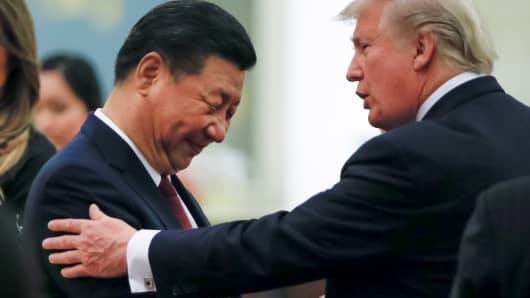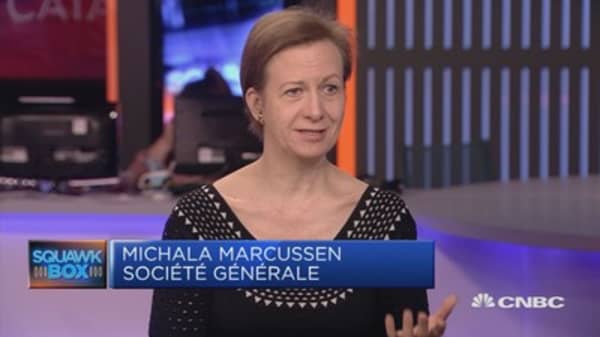The next logical step in the U.S.' escalating trade war with China could be President Donald Trump's administration ramping up the rhetoric on the falling yuan currency.
The U.S. dollar has appreciated 5 percent this year versus the yuan, with those gains occurring mainly in the last month or two. Accusations from Trump of currency manipulation were sizeable on his campaign trail, but have been more muted during his presidency.
That might be about to change.
"It could happen... This could be one more tool that the U.S. could bring to the table," Thanos Vamvakidis, the head of G-10 foreign exchange strategy at Bank of America Merrill Lynch, told CNBC's "Squawk Box Europe" last week.
Michala Marcussen, the global head of economics at Societe Generale, added that a falling yuan is likely to give Trump that little bit more ammunition when criticizing China and implementing his recent policies of trade tariffs. The bottom line being that the global economic picture is likely to deteriorate further.





